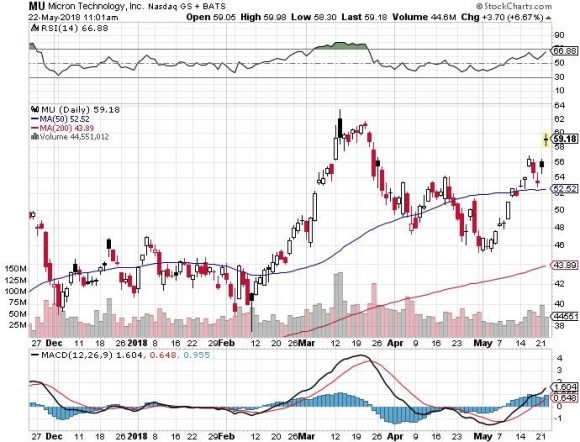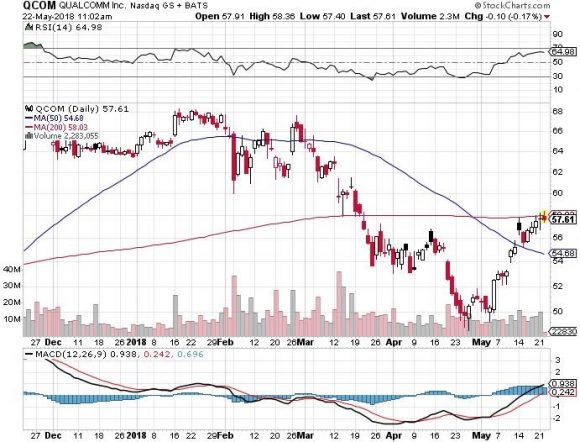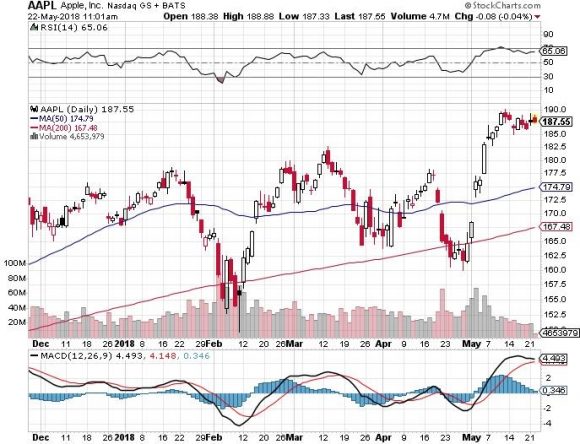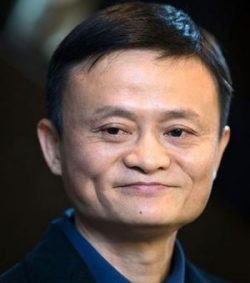Why the Big Deal Over ZTE?
Here's the conundrum.
Beyond cutting-edge technology, there's nothing that China WANTS OR NEEDS to buy from the U.S. China's largest imports are in energy and foodstuffs, both globally traded commodities.
China is playing the long game because it can.
Earlier this year, China altered its constitution to remove term limits and any obstacle that would hinder Chairman Xi to serve indefinitely.
If it's two, four, eight or 10 years, no problem, China will wait it out.
As it stands, China is enjoying the status quo, which is a robust economic trajectory of 6.7% economic growth YOY and at that rate will leapfrog America as the biggest economy in the world by 2030.
China does not need handouts.
It already has its mooncake and is eating it.
The Chinese are also betting that Donald Trump fades away with the passage of time, possibly soon, and that a vastly different administration will enter the fray with an entirely different strategy.
The indefinite "hold" pattern is a polite way to say we surrender.
ZTE Corporation is a Chinese telecommunications equipment manufacturer and low-end smartphone maker based in Shenzhen, China.
This seemingly innocuous company is ground zero for the U.S. vs China trade practice dispute.
The U.S. Department of Commerce banned American tech companies from selling components to ZTE for seven years, crippling its supply chain after violating sanctions against Iran and North Korea.
ZTE uses about 30% of American components to produce its smorgasbord of telecom equipment and down-market cell phones.
What most people do not know is that ZTE is the fourth most prevalent smartphone in America, only behind Apple, Samsung, and LG, commanding a 12.2% market share, and its phones require an array of American made silicon parts.
In 2017, the company shipped more than 20 million phones to the United States.
The ruling effectively put ZTE out of business because the lack of components shelved production.
Low-end smartphones account for almost one-third of total revenue.
ZTE could very well have survived with a direct hit to its consumer phone business, but the decision to ban components made the telecom equipment division inoperable.
This segment accounts for a heavy 58.2% of revenue. Therefore, disrupting ZTE's supply chain would effectively take down more than 91% of its business for a company that employs 75,000 employees in over 160 countries.
Upon news of ZTE's imminent demise, the administration made a U-turn on its initial decision stating "too many jobs in China lost."
The reversal made America look bad.
It shows that America is being dictated to and not the other way around.
When did it become the responsibility of the American administration to fill Chinese jobs for a company that is a threat to national security?
The Chinese refused to continue talks with the visiting delegation until the ZTE situation was addressed.
Treasury Secretary Steve Mnuchin and company were able to "continue" the talks then were politely shown the door.
Bending the rules for ZTE should have never been a prerequisite for talks, stressing the lack of firepower in the administration's holster.
However, stranding the delegation in Chinese hotel rooms for days waiting in limbo, without offering an audience, would have caused even more humiliation and anguish for the administration.
China is not interested in buying much from America, but one thing it needs -- and needs in droves -- are chips.
Long term, this ZTE ban is great for China.
I believe China will use this episode to rile up the nationalistic rhetoric and make it a point to wean itself from American chips.
However, for the time being, American chips are the most valuable import America can offer China, and that won't change for the foreseeable future.
The numbers back me up.
Micron (MU) earns more than $10 billion in revenue from China, which makes up over 51% of its total revenue.
Qualcomm (QCOM), mainly through its lucrative licensing division, makes more than $14.5 billion from its Chinese revenue, which comprises over 65% of revenue.
Texas Instruments (TXN) earns more than 44% of revenue from China, and almost a quarter of Intel's (INTC) revenue is derived from its China operations.
The biggest name embedded in China is Apple (AAPL), which earned almost $45 billion in sales last year. Its China revenue is three times larger than any other American company.
In less than a decade, China has caught up.
China now has adequate local smartphone substitutes through Huawei, Oppo, Vivo, and Xiaomi phones.
Skyworks Solutions (SWKS), a chip company reliant on iPhone contracts, is most levered toward the Chinese market capturing almost 83% of revenue from China.
You would think these chips would be the first on the chopping block in a trade war. However, you are wrong.
China needs all the chips it can get because there is no alternative.
Stopping the inflow of chips is another way of stopping China from doing business and developing technology.
The Chinese economy has been led by the powerful BATs of Baidu (BIDU), Tencent, and Alibaba (BABA) occupying the same prominent role the American FANGs hold in the American economy.
They are not interested in digging their own grave.
To execute the 2025 plan to become the world leaders in advanced technology, they need chips that power all modern electronic devices.
The most likely scenario is that China maintains development using American chips for the time being and slowly pivots to the Korean chip sector, which is vulnerable to Chinese political pressure.
Remember that South Koreans have two of the three biggest chip companies in the world in Samsung and SK Hynix. China has used economic coercion to get what it wants from Korea in the past or to prove a point.
Korean multinational companies, shortly after the Terminal High Altitude Area Defense (THAAD) installation on the Korean peninsula, were penalized by the Chinese government shutting down mainland Korean stores, temporarily banning Chinese tourism in South Korea, and blocking K-pop stars from performing in the lucrative Chinese market.
The Chinese communist government can turn the screws when it wants and how it wants.
Therefore, the next battleground for tech could migrate to South Korean chip companies as China is on a mission to suck up as much high-grade tech ingenuity as possible while it can.
China has some easy targets to whack down if the administration forces it into a corner with a knife to its throat.
Non-tech companies are ripe for massacre because they do not produce chips.
Companies such as Procter & Gamble, Starbucks, McDonald's, and Nike could be replaced by a Chinese imitation in a jiffy.
Apple is the 800-pound gorilla in the room.
An attack on Apple would hyper-accelerate tension between two leaders to the highest it's ever been and would be the straw that breaks the camel's back.
Technology has transformed the world.
Technology also has been adopted by nations as a critical component to national security.
Nothing has changed fundamentally, and nothing will.
China will become the biggest economy in the world by 2030.
China will kick the proverbial can down the road because it can. It never has to cooperate with America again.
Contrary to expectations, American chip companies are untouchable, and investors won't see Micron suddenly losing half its revenue over this trade war.
Until China can produce higher quality chips, it will lap up as much of Uncle Sam's chips until it can force transfer the chip technology from the Koreans.
American chip companies can breathe a sigh of relief.
_________________________________________________________________________________________________
Quote of the Day
"If we go to work at 8 a.m. and go home at 5 p.m., this is not a high-tech company and Alibaba will never be successful. If we have that kind of 8-to-5 spirit, then we should just go and do something else." - said Alibaba founder and executive chairman Jack Ma.





